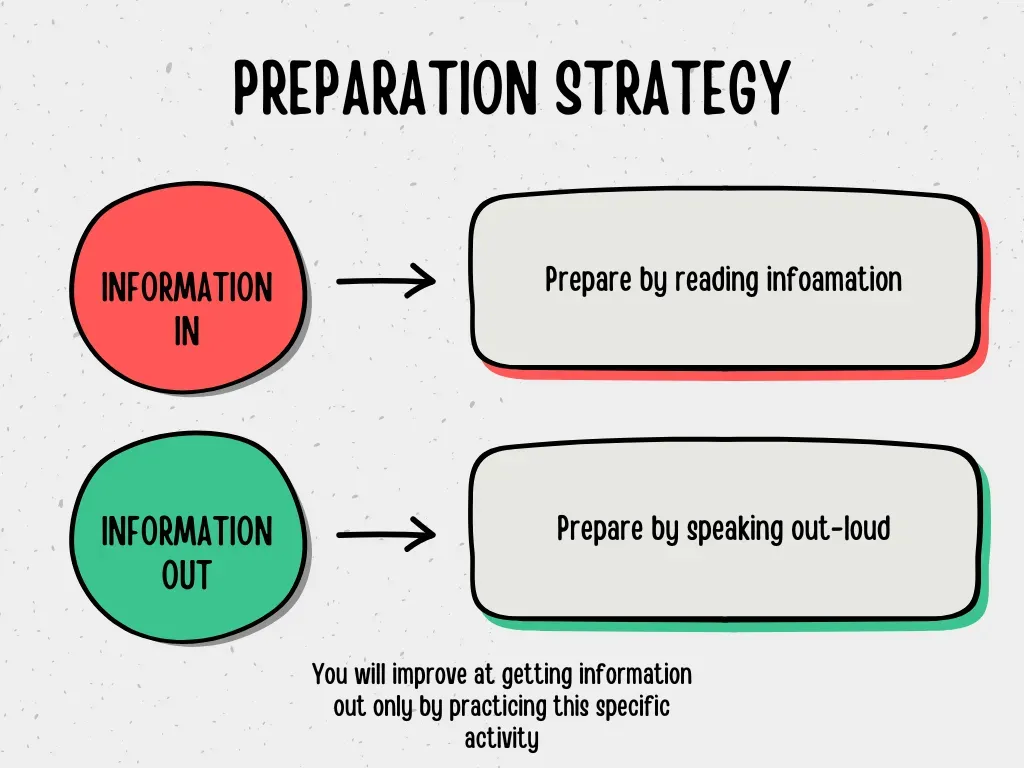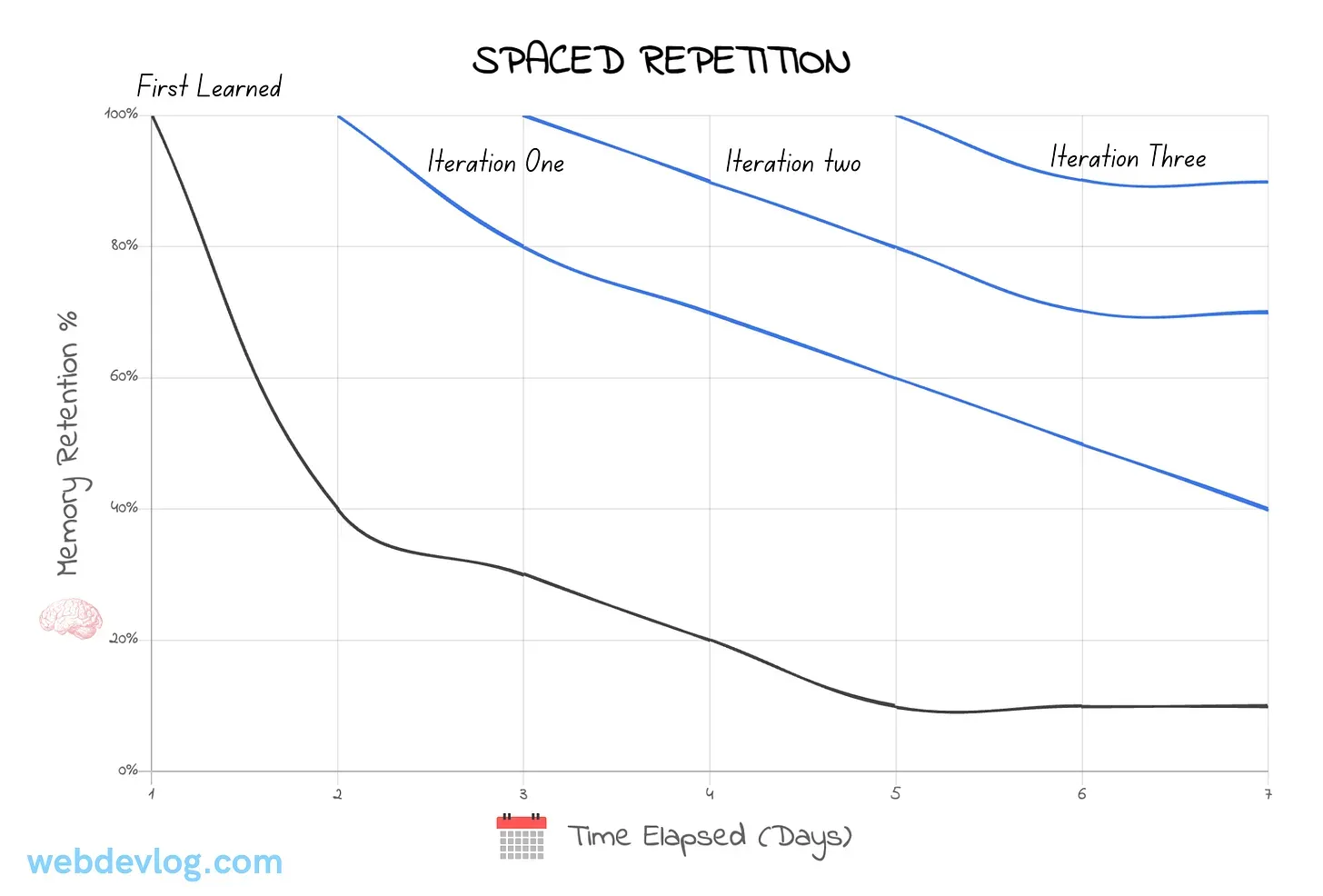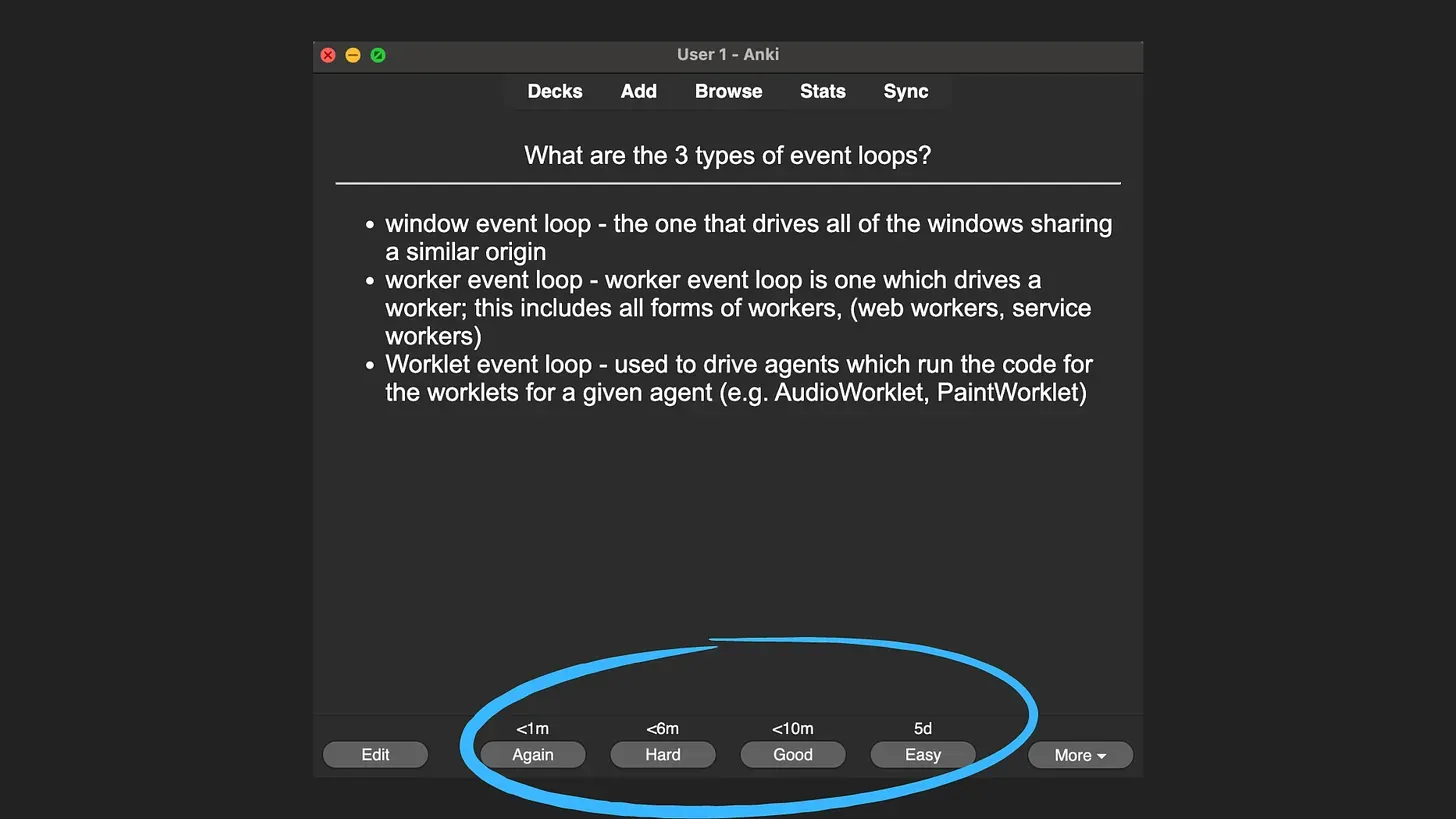Ace the Developer Technical Interview
Science-based methods to remember any interview question and answer with confidence and fluencyHave you ever failed the technical questions part of a job interview?
Maybe you’re preparing for an interview right now, and you want to make sure you don’t flop?
If so, keep reading because today I’m going to cover:
- What preparation mistakes to avoid if you want to come prepared to the interview
- How to remember any technical interview question
- How to stand out by answering with confidence and fluency
Let’s dive in:
The Problem
Trivia-like questions such as “how the event loop works”, “what is hoisting”, “what is closure” and so on are quite common in interviews for FullStack roles.
When it comes to those types of questions, developers often try to remember them by reading content, summarizing, highlighting, or watching videos.
Some even re-read their summaries, and try to memorize it to the best of their abilities.
In short, they’re preparing for an interview like they would a highschool exam.
Yet many times, it doesn’t work, and you will still find yourself stumbling over your words trying to explain something you thought you knew well.
The reason these preparations often don’t work well, is because this kind of practice doesn’t simulate how you’ll actually be tested in the real interview.
In an interview situation you need to answer different questions, and engage in a discussion with your interviewer.
So when you’re only preparing for interviews by putting information in, you never practice getting that information out, which is the primary activity you’ll be doing in the interview.

The Most Effective Way to Prepare
To get good at answering interview questions, you need to practice answering questions out-loud, the same way you’ll answer in the interview.
For example, instead of reading over and over again about how the event loop works, ask yourself the question and answer it out-loud. Practice explaining it like you would to a friend.
You’ll see the gaps immediately in terms of what you think you know and what you can actually explain.
It will also improve your confidence in the interview, because when asked a question you’ll experience it as something you’ve done before, it won’t be the first time you answered that question.
This technique is called active recall and studies (1, 2, 3) show it outperformed other passive learning techniques such as re-reading multiple times, mind-mapping or highlighting.
But active recall on its own is not enough.
How to Remember What You Learned
Excluding those with exceptional memories, chances are you will often quickly forget what you’ve learned for the first time.
We can see how it works by looking at the forgetting curve:

The curve demonstrates how information learned is lost over time when there is no attempt to consciously review & remember the learned material
To combat this, we can introduce repetitions with active-recall. That way, each time you recall what you’ve learned, the forgetting curve will get longer, and you will less frequently need to recall to keep it memorized.
We can see it demonstrated in this graph:

With each iteration, the forgetting curve becomes longer. and requires less iterations to remember
This technique is called spaced-repetition, and like active-recall it’s also proven as a successful way to retain knowledge for many.
You can use spaced-repetition without active-recall, but with it, it works particularly well.
Putting It Into Practice
To put these concepts into practice, I recommend using Anki - which is a free software that lets you create flashcards and utilize spaced-repetition and active-recall.
When practicing, you’ll see that after practicing a flash card you can pick when you’d like to review it again, for example:

This way allows you to review harder questions more frequently, and review the ones you already remember every once in a while.
To get started on your own:
-
Create a deck of cards containing popular questions for each subject you’d like to review (JS Questions Deck, Angular questions Deck)
-
Answer the questions in your own words. If you need to learn in order to do that, put the time in to learn about the topics first.
-
Practice by looking at the flash-card, answering out-loud and only then looking at the answer
-
Keep practicing a question until you can answer it without any problems
Repeat this process and you’ll see how your answers improve over-time and you can give a confident answer even for questions that you felt were the hardest to answer.
The Memorization Pitfall
These methods can easily be used in the wrong way.
There’s something kind of superficial about memorizing interview questions like this, because you can memorize questions you don’t fully understand and kind of cheat your way by giving pre-memorized answers.
This is one of the reasons I don’t put an emphasis on these type questions when I personally interview developers, and only use them for screening.
It’s important to understand that memorization is not a replacement to in-depth understanding, you don’t want to be in a situation where you can’t answer follow-up questions because you don’t actually understand the topic. This is a surefire way to get rejected, or worse, fired after you begin.
With that being said, I still believe this is the most effective way to study for this part of the interview, because you’ll need to remember a lot of technicalities, and studying this way allows you to remember a high number of details while also giving clear answers with confidence.
So use this together with in-depth learning to improve the quality of your answers and your confidence in giving them.
Summary
Passing the technical questions part of the interview requires being able to articulate an answer to a question, understanding it is not enough.
Using active-recall allows you to not only to remember more from your learning, but also practice answering questions in a way that is similar to how you’d answer them in the interview.
Using spaced-repetition, you can remember the answers better and ingrain them. So when the question is asked, you can answer it in the interview with confidence.
With Anki, you can easily utilize both of these techniques, and focus on improving the answers for questions that are harder for you to answer.
The main takeaway from this, is to practice in a way that is similar to the interview environment. Answer out loud, do mock interviews if you can, and you will eliminate a lot of anxiety when answering technical questions in the interview.
It will transform the interview from a situation of pressure and worry to a place where you can show your knowledge and have an interesting discussion.